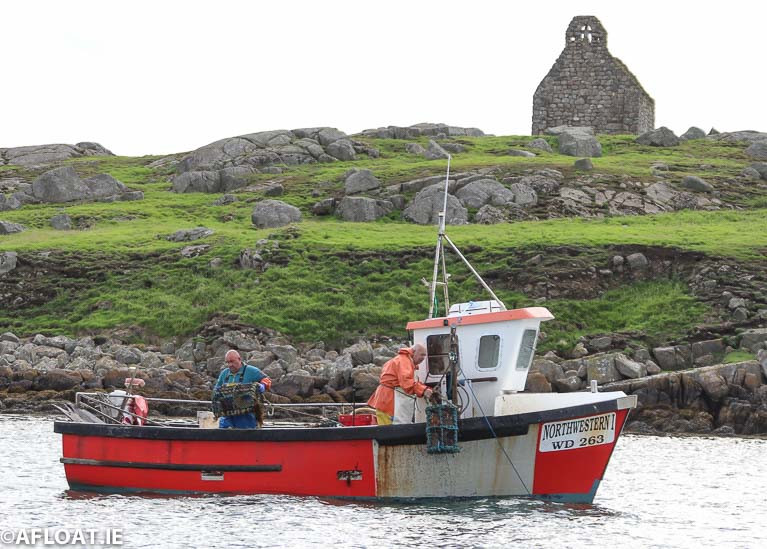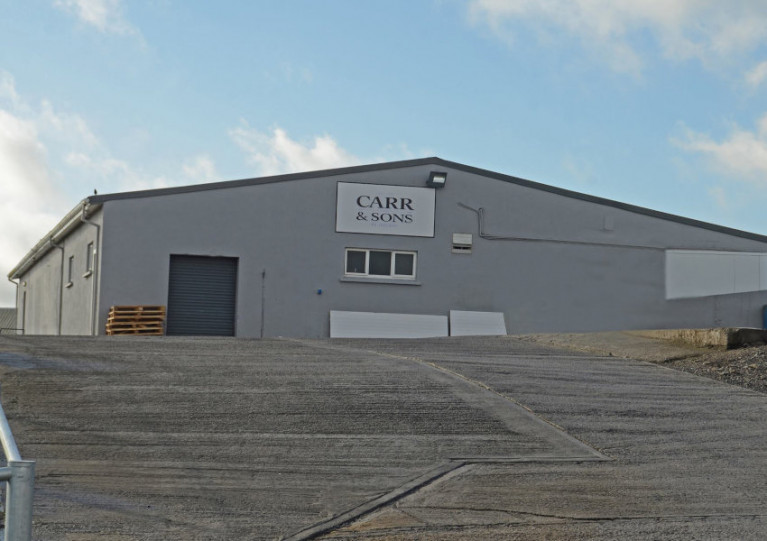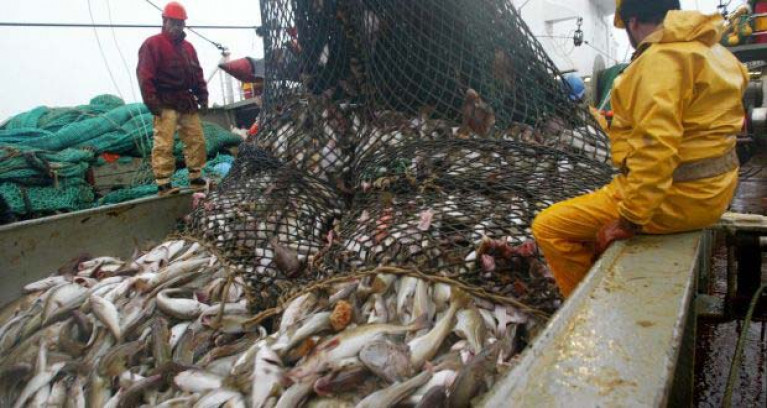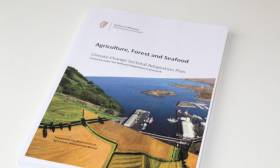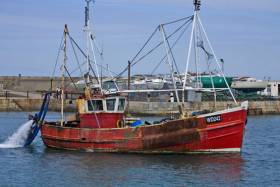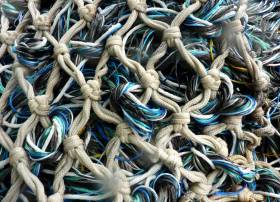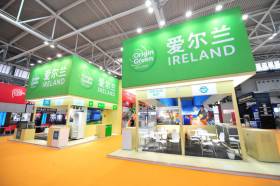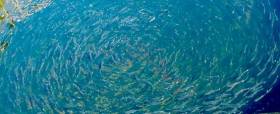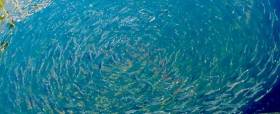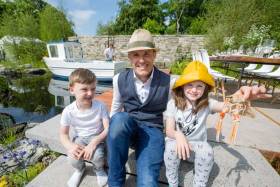Displaying items by tag: Seafood
Bord Iascaigh Mhara National Seafood Survey Deadline Extended
Bord Iascaigh Mhara (BIM), Ireland’s Seafood Development Agency, has extended the deadline of its National Seafood Survey by two weeks in an effort to increase response rates. The survey is designed to highlight the importance of fishing to families and their wider communities in Ireland.
More than one in ten (14%) of Ireland’s 1400 under 10m inshore fishing vessel owners have already completed the survey. All remaining under 10-metre vessel owners now have an opportunity to complete the survey until Monday, 8 February 2021.
Vera O’Donovan, Regional Development Officer, BIM spoke of the importance of inshore fisheries to coastal communities in Ireland and said:
“There are many competing interests for the marine resource. It's vital that inshore fisheries can co-exist in the marine space and have their economic and social contribution to rural society acknowledged fully.”
Inclusion of under 10-metre vessel data will help to provide a more accurate account of the economic contribution that the inshore sector brings to coastal communities and to inform both National and EU policymakers.
A copy of the survey and a freepost envelope for its return was posted to every under ten-metre fisher in Ireland in December. The survey can also be completed online and emailed to [email protected]. For more details or to download a copy of the survey click here
Marine Minister Michael Creed has welcomed €3.5 million of new investment in six seafood processing companies.
Announcing the funding yesterday, Thursday 11 June, Minister Creed said: “In these very challenging times for business generally and notably our seafood sector, I am delighted to support these six companies in building for the future.
“With our own economy and European and world markets reopening, we can have optimism again for future prosperity and growth.”
Carr & Sons in Mayo receives more than €387,000 for an extension to modernise their processing facilities, while Sofrimar in Wexford gets over €562,000 for its automated processing and packing line plans, and Seafood Processors Ltd in Co Louth benefits from €370,000 towards white fish filleting processing technology.
Elsewhere, Good Fish Processing in Co Cork gets €396,000 towards packaging capacity and efficiency, Keohane Seafood also in Cork will improve factory flow, efficiency and sustainability with its €1.44m investment, and the West Cork Export Market Collective (comprising Union Hall Smoked Fish Ltd and Keohane Seafood) receives more than €353,000 for leveraging collaboration to boost export sales.
“These six companies are preparing their businesses to grow exports and value because they have the confidence to know that our seafood sector is a high growth sector and that it will resume its long-term growth pattern now that markets are getting over the recent temporary, albeit severe difficulties,” the minister said.
“The national strategy is to add value wherever possible to our seafood products to ensure those products are well placed in the market. These grants will assist these Irish seafood companies to deliver on that strategy.”
Minister Creed added that his departmets’s present EMFF programme “is ready to assist seafood companies get back to business with capital, innovation, marketing and other supports”.
“From next year, my department’s new EMFF programme for the 2021-27 period will commence and will play a major role in assisting the recovery and renewed growth of our seafood sector,” he said.
Grants of €1,081,192 from the European Maritime and Fisheries Fund (EMFF) programme make up a portion of the total investment. These grants are co-funded by the Government of Ireland and the European Union and are subject to terms and conditions.
Seafood Development Programme 2021-27 Public Consultation Launched
The Minister for Agriculture Food and the Marine, Michael Creed TD today announced the opening of an initial public consultation to inform the development of a new operational programme for the sustainable development of the seafood sector for the 2021-27 period. The Programme will be developed in the context of the proposed EU Regulation on a European Maritime, Fisheries and Aquaculture Fund, which is presently being negotiated by the EU co-legislators with a view to enactment in the Autumn of 2020. The new operational programme will be co-funded by the Government of Ireland and the European Union.
Speaking at the launch of the public consultation, Minister Creed said: “My Department’s present EMFF Operational Programme for the seafood sector is nearing its end and will be wound up in 2021. It has been a success in channelling €240 million into vital investments to promote the sustainable growth of our seafood sector and will leave a lasting legacy of enhanced sustainability, profitability, competitiveness and enhanced value.
We are now facing into a new Programme period starting in 2021 and while many of the challenges and opportunities facing our seafood sector will continue to be relevant for the future programme, there will also undoubtedly be some new and changed investment priorities. Adapting our seafood sector to the changed landscape that Brexit will bring will be a vital consideration. Climate change is a top priority for Government and we must consider what the new Programme will contribute to Ireland’s response. Preservation of marine biodiversity and Clean Oceans and ensuring the sustainability of our fish stocks will continue to be top priorities. And we must continue to enhance the competitiveness, value and productivity of our sector through innovation, training, and targeted capital investment.
In this initial public consultation, I am asking our stakeholders to share their views on how we should address these and other relevant issues in our new programme, in what ways we should intervene, and how should we prioritise and get the right balance in distributing the available funds”.
The open call for submissions will run until 5 pm on Friday 7 February 2020. See the survey here.
Government Approves Agriculture, Forest & Seafood Climate Change Sectoral Adaptation Plan
Marine Minister Michael Creed, yesterday (Thursday 31 October) welcomed Government approval for the Agriculture, Forest and Seafood Climate Change Sectoral Adaptation Plan to prepare for the impacts of climate disruption.
“I am very pleased the Agriculture, Forest and Seafood Climate Change Sectoral Adaptation Plan has been approved as part of the Whole-of-Government approach adopted under Climate Action Plan 2019,” he said.
“We have taken a consistent approach to adaptation planning across the Department [of Agriculture, Food and the Marine] and have prepared a single plan covering the agriculture, forest and seafood sector.”
Th minister added: “In addition to reducing our emissions, we must ensure that our food production system is resilient and ready to adapt to future climate risk.”
Minister Creed described the plan approved today as “an important next step in our goal to build a strong and resilient sector that is well placed to take on the challenges and opportunities presented by our changing climate”.
The Adaptation Plan highlights a number of case studies identifying how the sector has and will continue to be impacted by changing weather patterns and steps towards building resilience.
The plan and its associated documents are available on the DAFM website HERE.
Marine Minister Michael Creed yesterday (Thursday 27 June) helped launch the public consultation process on the draft Climate Change Adaptation Plan for the agriculture, forest and seafood sectors.
“I am very pleased to launch this public consultation on adaptation planning,” said Minister Creed. “We have very much taken a joined-up approach to adaptation planning across the Department [of Agriculture, Food and the Marine] and have prepared a single plan covering the agriculture, forest and seafood sector.”
He added that in addition to reducing our emissions, “we need to ensure that our food production system is resilient and ready to adapt to future climate risk.
“Farmers, landowners and fishermen are very much to the forefront of dealing with the impacts of a changing climate in their everyday activities. However, climate change is not just an issue for the primary producer; it is something that everyone in the production chain needs to consider.
“The Irish agriculture, forest and seafood sector will not only be impacted by changes in climate here at home, but also by climate change globally.”
Andrew Doyle, Minister of State for food, forestry and horticulture, said the plan is “a next step in climate action planning. To successfully deal with the challenges facing us, we need to work together to make the right choices. While there will be challenges, there will also be opportunities.”
The draft Climate Change Adaptation Plan highlights a number of case studies identifying how the sector has and will continue to be impacted by changing weather patterns, and steps towards building resilience.
Feedback on the draft plan and suggestions as to how the department and the sector itself can best prepare to operate in a changing climate should be forwarded before the closing date of Friday 16 August.
Speaking ahead of the Our Ocean Wealth Summit in Cork earlier this month, Tánaiste Simon Coveney said the State is particularly aware of the threat posed by climate change to this island nation.
The subsequently launched Climate Action Plan from the Department of Communications, Climate Action and the Environment has been welcomed in many quarters, but has also been criticised for showing “little ambition”.
Trade in fish from the EU to Britain will be subject to a range of tariffs in the event of a no-deal Brexit.
But there will be zero tariffs for goods traded from the Republic to Northern Ireland under the temporary measures announced by the UK government this morning (Wednesday 13 March).
It follows the Commons defeat of Theresa May’s latest tabling of her Withdrawal Agreement deal, with MPs set to vote tonight on whether to rule out the no-deal Brexit option.
It is now proposed that should Britain leave the EU without a deal, no new customs checks or controls would be introduced on the border between the Republic and Northern Ireland.
However, tariffs would still apply on goods moving from the EU into the rest of Britain via Northern Ireland.
The new regime zero-rates tariffs across many imports into Britain after a no-deal Brexit. But agri-food products are among the listed exceptions, with a range of rates applying.
Fish and seafood will be subject to a range of import tariffs from 7.5% for frozen monkfish meat (excluding fillets) to 24% for prepared or preserved tuna (excluding bluefin).
A rate of 12% will apply to frozen crustaceans, while frozen fish will be hit with 8% charges, with fillets levied an extra percent.
The Irish Farmers’ Association has already branded the proposals as disastrous for Ireland’s agricultural industry, singling out beef as one of is “most exposed sectors”, as RTÉ News reports.
Irish Seafood To Make An Impression At Major Trade Expo In China
Later this week Andrew Doyle, Minister of State at the Department of Agriculture, Food and the Marine, will lead Irish participation in Qingdao, China at the Seafood Expo, one of the largest seafood fairs in the world.
Irish seafood exports to China have grown rapidly to over €28 million last year, and there is potential for further growth. Up to 12 Irish seafood companies will be represented on the Origin Green Ireland stand.
This trade visit follows technical meetings to discuss meat market access held by DAFM officials in Beijing on Friday, and the Trade Mission to Indonesia and Malaysia led by Marine Minister Michael Creed, who also addressed the Our Ocean Conference in Bali last Monday.
“Market development, including understanding, accessing and growing new markets, is a key theme of our shared Food Wise 2025 strategy, and an important response to the challenges posed by Brexit,” Minster Doyle said.
Earlier in the week the minister will attend the CIIE (Chinese Import and Export Expo) in Shanghai. This Chinese government-led expo, to be opened by President Xi Jinping, is intended to serve as a showcase for China’s commitment to international trade.
The Irish delegation will be led by Heather Humphreys, Minister for Business, Enterprise and Innovation and will feature a significant presence from Bord Bia and a total of 11 Irish meat and dairy companies.
More Than €1.5 Million In Grants For 20 Seafood Companies
#Seafood - Marine Minister Michael Creed has announced more than €1.5 million in grants to 20 seafood enterprises in 10 different counties around Ireland.
The grant awards — under the European Maritime and Fisheries Fund (EMFF) Operational Programme for the seafood sector ad totalling €1,532,230 — will support total investment of €4,018,852 in the fisheries, aquaculture and seafood processing sectors.
These grants are co-funded by Government of Ireland and the European Union and subject to terms and conditions.
“It is very encouraging to see a continued increase in investment in aquaculture and these investments will positively contribute to our sustainable growth targets for the sector,” Minister Creed said on launching the latest grants. “ It is also reassuring to see our fisheries cooperatives continuing to invest to position themselves to handle unwanted catches under the new CFP discards ban.
“Investing in our seafood sector increases jobs in rural and coastal communities – a priority for this Government. Furthermore the development of the innovation and value added capacity of the sector is key to mitigating the potential impacts of Brexit.”
The news comes just days after Minister Creed announced €1.5 million in funding for more than 100 coastal-based projects under the EMFF, as previously reported on Afloat.ie.
#Seafood - Marine Minister Michael Creed has called for European Maritime & Fisheries Funding (EMFF) for small to medium enterprises in aquaculture and seafood processing to be continued post-2020.
Addressing the Council of Agriculture and Fisheries Ministers meeting in Luxembourg yesterday (Monday 18 June), the minister said: “Ireland expects to fully spend its 2014-2020 allocation and we foresee increasing investment opportunities and demands for the 2021-2027 period.
“I would like to highlight one particular area of initial concern that we have identified, namely the apparent proposal to restrict EMFF aid for capital investment in aquaculture and seafood processing to financial instruments only. Currently such a restriction applies to large scale operators only.
“The majority of our operators are small or medium enterprises. Depriving them of grant aid would have a very negative impact on our policy objectives to grow scale and add value in our processing and aquaculture sectors.
Minister Creed added: “While we are in favour of continued and increased use of financial instruments, we must continue to have recourse to grant aid where these are most appropriate.”
A garden that tells the story of how Irish seafood is being sustainably produced to help protect fish stocks, protect the marine environment and develop and sustain fisheries-dependent coastal communities in Ireland has been announced as the overall winner of Bloom 2018.
The Bord Iascaigh Mhara (BIM) Sustainable Seafood Garden was designed by contemporary garden designer Andrew Christopher Dunne, who drew inspiration from his home village of Clogherhead, Co Louth.
The decision was made following a two-day judging process with an independent panel of expert judges. The award was announced as Bord Bia opened its gates in Dublin's Phoenix Park this morning (Thursday 31 May).
BIM chief executive Jim O’Toole said: “All of us in BIM are thrilled that the Sustainable Seafood Garden has received this award today. This is BIM’s first time at Bloom and I want to thank everyone who has been involved in the creation of the garden.
“In particular, I want to applaud the dedication and vision of our garden designer, Andrew Christopher Dunne. From the outset, Andrew understood our aim to celebrate Ireland’s seafood sector in its entirety. He has impressed everyone with his incredible attention to detail to ensure that every plant, tree and feature within the garden is linked to our message of sustainability.”
The impressive marine garden set amongst two piers – old and new – representing the traditional and modern fishing industry includes plants and trees found along Ireland’s coastal areas, including wild flowers, ferns and grasses.
The centrepiece of the garden includes a large water feature with shimmering fish sculptures and an ‘upcycled’ fishing boat where some of Ireland’s leading fishmongers and chefs will be showcasing sustainably sourced seafood throughout the five-day event. The garden also includes furniture and features made from recycled materials.
“This has been a labour of love for me,” said garden designer Dunne. “I’m so proud to get this recognition for the garden. The theme has particular resonance for me as I’ve lived all of my life in a fishing village in Co Louth and I have a keen understanding of the importance of our seafood industry.”
Bloom 2018 officially opens today and runs until Monday 4 June.



























